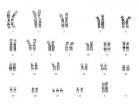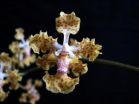(Press-News.org) NEW YORK, NY (April 16, 2014) — The cause of neuronal death in Parkinson's disease is still unknown, but a new study proposes that neurons may be mistaken for foreign invaders and killed by the person's own immune system, similar to the way autoimmune diseases like type I diabetes, celiac disease, and multiple sclerosis attack the body's cells. The study was published April 16, 2014, in Nature Communications.
"This is a new, and likely controversial, idea in Parkinson's disease; but if true, it could lead to new ways to prevent neuronal death in Parkinson's that resemble treatments for autoimmune diseases," said the study's senior author, David Sulzer, PhD, professor of neurobiology in the departments of psychiatry, neurology, and pharmacology at Columbia University College of Physicians & Surgeons.
The new hypothesis about Parkinson's emerges from other findings in the study that overturn a deep-seated assumption about neurons and the immune system.
For decades, neurobiologists have thought that neurons are protected from attacks from the immune system, in part, because they do not display antigens on their cell surfaces. Most cells, if infected by virus or bacteria, will display bits of the microbe (antigens) on their outer surface. When the immune system recognizes the foreign antigens, T cells attack and kill the cells. Because scientists thought that neurons did not display antigens, they also thought that the neurons were exempt from T-cell attacks.
"That idea made sense because, except in rare circumstances, our brains cannot make new neurons to replenish ones killed by the immune system," Dr. Sulzer says. "But, unexpectedly, we found that some types of neurons can display antigens."
Cells display antigens with special proteins called MHCs. Using postmortem brain tissue donated to the Columbia Brain Bank by healthy donors, Dr. Sulzer and his postdoc Carolina Cebrián, PhD, first noticed—to their surprise—that MHC-1 proteins were present in two types of neurons. These two types of neurons—one of which is dopamine neurons in a brain region called the substantia nigra—degenerate during Parkinson's disease.
To see if living neurons use MHC-1 to display antigens (and not for some other purpose), Drs. Sulzer and Cebrián conducted in vitro experiments with mouse neurons and human neurons created from embryonic stem cells. The studies showed that under certain circumstances—including conditions known to occur in Parkinson's—the neurons use MHC-1 to display antigens. Among the different types of neurons tested, the two types affected in Parkinson's were far more responsive than other neurons to signals that triggered antigen display.
The researchers then confirmed that T cells recognized and attacked neurons displaying specific antigens.
The results raise the possibility that Parkinson's is partly an autoimmune disease, Dr. Sulzer says, but more research is needed to confirm the idea.
"Right now, we've showed that certain neurons display antigens and that T cells can recognize these antigens and kill neurons," Dr. Sulzer says, "but we still need to determine whether this is actually happening in people. We need to show that there are certain T cells in Parkinson's patients that can attack their neurons."
If the immune system does kill neurons in Parkinson's disease, Dr. Sulzer cautions that it is not the only thing going awry in the disease. "This idea may explain the final step," he says. "We don't know if preventing the death of neurons at this point will leave people with sick cells and no change in their symptoms, or not."
INFORMATION:
The paper is titled: "MHC-1 expression renders catecholaminergic neurons susceptible to T-cell-mediated degeneration." Other contributors are: from CUMC, Ellen Kanter, Jonathan Mandelbaum, Jean P. Vonsattel, and John D. Loike; from Sloan-Kettering Institute, Julius Steinbeck, Lorenz Studer, Sadna Budhu, and Luigi Zecca; from the National Research Council of Italy, Fabio Zucca and Pierluigi Mauri.
The authors declare no financial or other conflicts of interest. Columbia University and the La Jolla Institute for Allergy & Immunology have filed a patent application relating to T cell responses and Parkinson's disease.
The research was supported by the NIH (R01NS064155 and U01NS082157), Caja Madrid Foundation; the JPB Foundation; the Parkinson's Disease Foundation; the Udall Center of Excellence at Columbia; the University of Milan the Italian Ministry of Education, University and Research; the Department of Defense; the Michael J. Fox Foundation; the M.E.M.O. Hoffman Foundation; the German Research Council; and NYSTEM.
Columbia University Medical Center provides international leadership in basic, preclinical, and clinical research; medical and health sciences education; and patient care. The medical center trains future leaders and includes the dedicated work of many physicians, scientists, public health professionals, dentists, and nurses at the College of Physicians and Surgeons, the Mailman School of Public Health, the College of Dental Medicine, the School of Nursing, the biomedical departments of the Graduate School of Arts and Sciences, and allied research centers and institutions. Columbia University Medical Center is home to the largest medical research enterprise in New York City and State and one of the largest faculty medical practices in the Northeast. For more information, visit cumc.columbia.edu or columbiadoctors.org.
Is Parkinson's an autoimmune disease?
Attack by own immune system may kill neurons in Parkinson's disease
2014-04-17
ELSE PRESS RELEASES FROM THIS DATE:
AGU: More, bigger wildfires burning western US, study shows
2014-04-17
WASHINGTON, D.C. -- Wildfires across the western United States have been getting bigger and more frequent over the last 30 years – a trend that could continue as climate change causes temperatures to rise and drought to become more severe in the coming decades, according to new research.
The number of wildfires over 1,000 acres in size in the region stretching from Nebraska to California increased by a rate of seven fires a year from 1984 to 2011, according to a new study accepted for publication in Geophysical Research Letters, a journal published by the American Geophysical ...
New study says probiotic use for infant colic is not effective in reducing symptoms
2014-04-17
CHICAGO, IL, April 17, 2014-- Colic affects about one in five infants in the United States annually and accounts for numerous pediatric visits during the first several months after birth. Research into probiotic use for reduction of colic symptoms was showing promise; however, the April 1, 2014 issue of the British Medical Journal (BMJ2014;348:g2107; Sung, Valerie) reported on a study, "Probiotics and Infant Colic," concluding that the use of the probiotic L reuteri for infant colic did not reduce crying or fussing in infants nor was it effective in improving infant sleep, ...
BUSM researchers find anti-seizure drug may reduce alcohol consumption
2014-04-17
Boston—Researchers from Boston University School of Medicine (BUSM) have discovered that the anti-seizure drug ezogabine, reduced alcohol consumption in an experimental model. The findings, reported in the American Journal of Drug and Alcohol Abuse, may lead to more effective treatments for alcoholism.
Excessive consumption of alcohol is one of the leading causes of illness and death in the U.S. and has significant negative economic impact by limiting the productivity of workers and necessitating huge health care expenditures.
According to the researchers, this study ...
Trisomy 21: How an extra little chromosome throws the entire genome off balance
2014-04-17
Occurring in about one per eight hundred births, Down syndrome - or trisomy 21 - is the most frequent genetic cause of intellectual disability. It results from a chromosomal abnormality where cells of affected individuals contain a third copy of chromosome 21 (1% of the human genome). A study conducted by Stylianos Antonarakis and his team in the Department of Genetic Medicine and Development at the University of Geneva (UNIGE) Faculty of Medicine, published in Nature, shed light on how the extra chromosome 21 upsets the equilibrium of the entire genome, causing a wide ...
Re-emergence of Ebola focuses need for global surveillance strategies
2014-04-17
NEW YORK – April 17, 2014 – EcoHealth Alliance, a nonprofit organization that focuses on conservation and global public health issues, published a comprehensive review today examining the current state of knowledge of the deadly Ebola and Marburg virus. The review calls for improved global surveillance strategies to combat the emergence of infectious diseases such as the recent outbreak of Ebola in West Africa that has claimed the lives of 122 people in the countries of Guinea and Liberia. According to the World Health Organization (WHO), the deadly Ebola virus can cause ...
Long-term effects of battle-related 'blast plus impact' concussive TBI in US military
2014-04-17
New Rochelle, NY, April 17, 2014—U.S. military personnel who served in Iraq and Afghanistan and suffered "blast plus impact" concussive traumatic brain injury (TBI) were compared to military personnel without TBI who were evacuated for other medical reasons. Differences in measures of overall disability, cognitive function, post-traumatic stress, and depression 6-12 months after injury are reported in an article in Journal of Neurotrauma, a peer-reviewed journal from Mary Ann Liebert, Inc., publishers. The article is available free on the Journal of Neurotrauma website ...
Fish consumption advisories fail to cover all types of contaminants
2014-04-17
A new modeling study suggests that fish consumption advisories for expecting mothers are ineffective in reducing infant exposure to long-lived contaminants like persistent organic pollutants (POPs).
The study, performed by a team of researchers including University of Toronto Scarborough PhD student Matt Binnington and Professor Frank Wania, looks at how different levels of environmental contamination, a mother's compliance with advisories, and the behavior of chemicals in the body influenced exposure in her children.
Their model estimates that women who stop eating ...
Proper stem cell function requires hydrogen sulfide
2014-04-17
Stem cells in bone marrow need to produce hydrogen sulfide in order to properly multiply and form bone tissue, according to a new study from the Center for Craniofacial Molecular Biology at the Herman Ostrow School of Dentistry of USC.
Professor Songtao Shi, principal investigator on the project, said the presence of hydrogen sulfide produced by the cells governs the flow of calcium ions. The essential ions activate a chain of cellular signals that results in osteogenesis, or the creation of new bone tissue, and keeps the breakdown of old bone tissue at a proper level.
Conversely, ...
Orchid named after UC Riverside researcher
2014-04-17
RIVERSIDE, Calif. — One day about eight years ago, Katia Silvera, a postdoctoral scholar at the University of California, Riverside, and her father were on a field trip in a mountainous area in central Panama when they stumbled upon an orchid they had never seen before.
Unable to identify it, they contacted German Carnevali, a world authority on orchids. The orchid turned out to be an unnamed species. So Carnevali recently named it after the Silveras: Lophiaris silverarum.
"Lophiaris" is the genus name, comprising about 40 species in the world. Carnevali, the director ...
New MRSA superbug emerges in Brazil
2014-04-17
An international research team led by Cesar A. Arias, M.D., Ph.D., at The University of Texas Health Science Center at Houston (UTHealth) has identified a new superbug that caused a bloodstream infection in a Brazilian patient. The report appeared in the April 17 issue of The New England Journal of Medicine.
The new superbug is part of a class of highly-resistant bacteria known as methicillin-resistant Staphylococcus aureus or MRSA, which is a major cause of hospital and community-associated infections. The superbug has also acquired high levels of resistance to vancomycin, ...
LAST 30 PRESS RELEASES:
Cosmic rays streamed through Earth’s atmosphere 41,000 years ago
ACP issues clinical recommendations for newer diabetes treatments
New insights into the connections between alcohol consumption and aggressive liver cancer
Unraveling water mysteries beyond Earth
Signs of multiple sclerosis show up in blood years before symptoms
Ghost particle on the scales
Light show in living cells
Climate change will increase value of residential rooftop solar panels across US, study shows
Could the liver hold the key to better cancer treatments?
Warming of Antarctic deep-sea waters contribute to sea level rise in North Atlantic, study finds
Study opens new avenue for immunotherapy drug development
Baby sharks prefer being closer to shore, show scientists
UBC research helps migrating salmon survive mortality hot-spot
Technical Trials for Easing the (Cosmological) Tension
Mapping plant functional diversity from space: HKU ecologists revolutionize ecosystem monitoring with novel field-satellite integration
Lightweight and flexible yet strong? Versatile fibers with dramatically improved energy storage capacity
3 ways to improve diabetes care through telehealth
A flexible and efficient DC power converter for sustainable-energy microgrids
Key protein regulates immune response to viruses in mammal cells
Development of organic semiconductors featuring ultrafast electrons
Cancer is a disease of aging, but studies of older adults sorely lacking
Dietary treatment more effective than medicines in IBS
Silent flight edges closer to take off, according to new research
Why can zebrafish regenerate damaged heart tissue, while other fish species cannot?
Keck School of Medicine of USC orthopaedic surgery chair elected as 2024 AAAS fellow
Returning rare earth element production to the United States
University of Houston Professor Kaushik Rajashekara elected International Fellow of the Engineering Academy of Japan
Solving antibiotic and pesticide resistance with infectious worms
Three ORNL scientists elected AAAS Fellows
Rice bioengineers win $1.4 million ARPA-H grant for osteoarthritis research
[Press-News.org] Is Parkinson's an autoimmune disease?Attack by own immune system may kill neurons in Parkinson's disease






